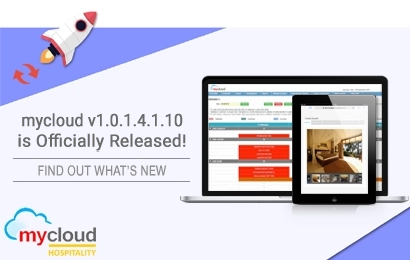Hotels struggle for many reasons – some find it difficult to acquire new customers in today’s fiercely competitive market, some suffer from poorly handled no-shows and low retention rates, while others lose money simply because of ineffective hotel revenue management solutions and the bad economy.
All things considered, hoteliers have seen brighter days.
But there are still insiders’ tips and trade secrets that can turn all this around. When they are superficial, they rely on little but discounts and special offers to boost revenue. But when they are thorough and analytical, these tips increase revenue by redefining its core game plan – management.
Such are the following five tips, as revealed by top dog hoteliers.
1. Be Careful When Choosing Your Comp Set
The comp set of every hotel is highly unique, directly affecting its prices and market value. The service scale and quality, geographical location and accessibility, event organizing capacity, the total number of rooms, and leisure facilities all fall under competitive traits, but they still must be thoughtfully chosen.
In case they are not, the entire revenue strategy may be flawed.
It’s up to hoteliers who are looking to stay relevant and competitive to evaluate them with care and to never stop re-evaluating them afterward. The “if it’s not broken, don’t fix it” mindset doesn’t work here. As the market changes with every season, new contenders arise to steal what’s left of old hotels.
In order to foresee this change and act preemptively, you need to stay in the know with both your comp set (your hotel’s current performance, its strengths, and weaknesses) and your competitors (the way they are reshaping the market and disrupting the industry). In a word, you need a comp set analysis.
2. And, Never Stop Re-evaluating It Afterwards
This calls for comprehensive market research.
The first that must be re-evaluated are your customers – who they are, and what are their needs and preferences. Combined with your comp set, this data will reveal you your strengths, weaknesses, opportunities, and threats. Then, you must start snooping around to see who’s stealing your business.
Without a recurring comparative table to showcase your differentiating points against those of your contenders, your revenue strategy will be short-lived. This is the first and most important set of data for determining your prices, acquisition approach, and retention techniques for the next few seasons.
3. Embrace Hotel Management Technology
Having a robust hotel revenue management software to rely on goes a long, long way. This part of the hotel experience equation – revenue management – has always been the trickiest of all, especially when you take into account that the entire strategizing process directly depends on its utter accuracy.
Luckily for all hoteliers, automation is here to help.
Cutting-edge solutions for revenue management in hotel industry come with niche-specific analytics that highlight market trends, provide real-time reports, and interpret past, current, and future performance data. It is market research on steroids, enabled and supported by powerful automation.
Hotel revenue management solutions boast features for instant revenue status overview and annual budget comparison, thus streamlining not only recurring comp set analysis, but also day-to-day operations. In today’s age of booming biz tech, only they guarantee certain competitive edge to hotels.
4. Learn When to Stand Behind Your Prices
Slow seasons are the necessary evil in the hotel industry.
Resist the impulse to lower your prices as soon as you smell one on the horizon, experts say. They affect the overall value of your offer too, significantly changing your ratings on booking sites. Within your unique niche (defined by your target audience and comp set), the price remains a mark of quality.
That’s why market research and other hotel revenue management solutions are so important in the first place – by allowing you to predict slow seasons beforehand, they enable you to strategize with them in mind. Stay true to your prices, as they are key to positioning your hotel as a consistent value.
5. Innovate Your Offer as Often as You Can
Meanwhile, think outside of the box. Come up with new ways to use your facilities, and make them as versatile as possible. With proper management, a booked room with a late check-in can be sold to a guest needing a pit stop for a couple of hours before that. A pool as a wedding venue? Why not? When you’re equipped with a reliable booking system and creative staff, nearly everything can be arranged.
It goes without saying that revenue management in the hotel industry cannot do without effective on-site management to support it. It’s your staff that determines the quality of your service, while your total revenue depends on how satisfied your customers are. Strategize carefully, but stay focused on them.








